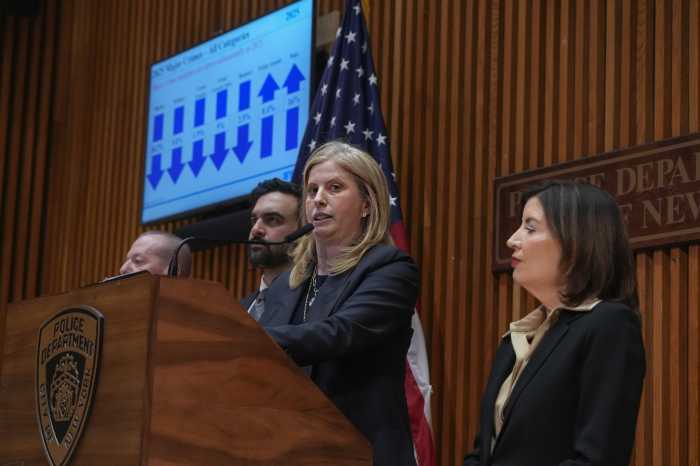
Income inequality is not just a political issue for mixed-income couples in New York: It’s a personal one.
Just ask dancer Karen Pleasant, 44, of East Meadow. A wealthier banker boyfriend — “he made twice what I did” – paid most of their living expenses. But “I got tired of hearing, ‘Get a real job,’” so she left him.
He used money as a measure of personal worth, she explained, and “when one person is not fully able to appreciate what the other one does, it causes a strain.”
The Cinderella trope is a popular narrative in mythology, but in real life living happily ever after with a lover who earns more or less than you can be a delicate and difficult feat.
This is especially so in NYC, say therapists, where the average renter shovels 39.4% of their income into rent, according to a 2014 survey by Comptroller Scott Stringer.
Yet, NYC is also a city where opposites — arty, liberal arts types with modest incomes and handsomely recompensed finance professionals — do indeed attract.
And the cost of housing frequently pushes people into cohabitation before they have worked out how to handle the power imbalance that accompanies unequal paychecks.
“The priorities are changing,” as a result of the housing crisis, explained Stanley Teitelbaum, a midtown clinical psychologist and a member of the Financial Therapy Association.
Teitelbaum feels strongly that each partner should contribute “more or less in proportion to their earnings: If one makes twice as much, he can pay two-thirds. But it’s also important for the lesser-earning person to contribute something to the monthly expenses,” so he or she does become dependent on the wealthier partner, he said.
Yet, many couples move in presuming that expenses will be equally split — which can cause problems.
One woman seeing Matt Lundquist, a psychotherapist and director of Tribeca Therapy, “couldn’t afford to go out to dinner at the end of the month” while her partner was spending lavishly on himself.
“They just hadn’t thought about it. He had to kick in a larger share of the monthly expenses. But when things are working for you and you’re getting the better deal, you’re not likely to notice,” Lundquist said.
Unequal incomes force NYC couples to quickly confront their level of commitment: Planning for the future, whether it involves a bigger apartment, what to spend on a vacation or dinner, or how to raise kids, unveils whether a bond is lifelong or “for the duration.”
Andres Ortega, 31, a publicist who lives with his partner in a $2,200 a month 496-square feet studio in Long Island City, said the key in his relationship has been “being very transparent about our finances and what we’re comfortable with.”
He and his higher-earning partner split all expenses equally, although Ortega is occasionally the beneficiary of a spontaneous act of generosity, such as a recent flight to Bermuda.
Ortega is comfortable with a 50-50 split as long as his monthly outflow doesn’t exceed “what I would spend if I lived alone. … If we get to the point that we want to move to a one-bedroom together, the question becomes one of my comfort and our commitment to each other: What is our future and our financial future together?”
For Arran Skinner, 40, a creative advisor for an NGO, the secret to happiness in his Upper East Side home is having “family meetings every other Sunday” about money and budgeting.
He and his fiancée, Melissa Petro, 36, a freelance writer who leads writing workshops for under-heard writers, have a joint banking account for household expenses.
While Skinner has more dough than Petro they budget as a team. Skinner, for example, gave Petro an interest-free loan of more than $5,000 to pay down her credit card debt because she couldn’t catch up to the 12% interest rate. “It was really practical: With her paying so much to the bank, we were losing money. It just made no sense for us as a couple for her to be giving all this money to someone else,” Skinner explained.



































